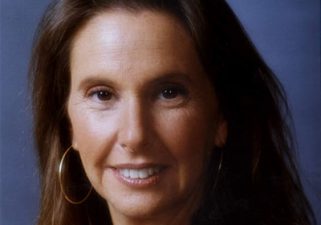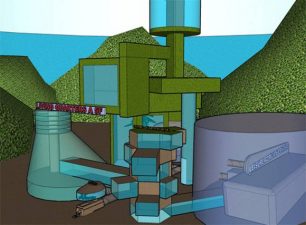
Israel’s Environmental Protection Ministry threatens to enforce their will in Palestinian territory, where the plans for Rawabi are not as green as Palestinian/Qatari developers profess.
Israel’s excess extraction from the Jordan River (as well as other factors) could soon kill it altogether with serious ramifications for Israelis, Jordanians, and Palestinians. There is no question that one nation’s poor environmental decisions can impact on another. As such, every community owes it to the rest of the world as well as their own citizens to maintain the existing and create built environments modestly and sustainably.
Thus the planned city Rawabi in Palestine raises concerns. Although we applaud the Palestinian Authority’s goal to create short and long term jobs and improve the quality of life for Palestinians living between Ramallah and Nablus, there is something fishy about the big Palestinian/Qatari rush to erect Rawabi without first addressing basic concerns.
Environmental assessments
Israel’s Environmental Protection Minister Gilad Erdan requested access to the Rawabi environmental impact assessment approved by the Palestinian Authority, the Jerusalem Post reports.
Though Bayti Real Estate Investment Company (a joint project between the Qatari government-owned Qatari Diar and Ramallah-based Masser International) was not required to do so, they caved in to pressure and handed over their report, according to the paper.
Ehud Maldoks wrote that Minister Erdan complained that the assessment was unsatisfactory and recommended certain adjustments. Meanwhile, he has threatened to shut down the access roads under Israeli military control that lead to Area A of the West Bank if those complaints are not addressed.
Minister Erdan explained to the Jerusalem Post:
I am absolutely not in favor of turning the access route over to the PA. First of all, I think it would set a bad precedent, which the government would likely be asked to repeat, like the construction moratorium. Second, this is our only way to put pressure on the developers. I have no intention of creating an environmental double standard where one thing is expected of Jewish settlements, while Palestinian cities can do whatever they want.
Mind your own environment
While it is true that exceptional environmental standards should be met, Minister Erdan’s complaints are clearly bitter. And until environmental laws are instated whereby a politician from one country may dictate the procedures of another – based on their shared environmental resources – he has no right to exert control. Besides, with its intention to exploit oil shale and continue Dead Sea mineral operations, Israel’s own environmental record is far from pristine.
Even so, the Rawabi developers claim that Rawabi will be Palestine’s greenest city.
“The planners have included green parks, public transportation, and cutting-edge telecommunications and information technology,” Amr Dajani, who represents the developers, told Waldoks.
But they are pushing forward despite having no clear solid waste management plan in place, nor an established wastewater treatment center. The paper reports:
Dajani said the city would eventually be incorporated into a regional solid waste and wastewater management system, which would include nearby Ramallah, but that they were looking at short-term solutions to enable completion of phase one in two and a half years. He said Israeli companies that offer wastewater treatment solutions had been approached, such as Aqwise.
Where the city – which is expected to provide shelter to 40,000 people – will obtain its water is still in question, as is the issue of dust during construction.
Beware the Qatari model
By all means, build, and improve life for the Palestinian people. But not in haste.
And since the Qatari government is involved, a word of caution from the organizers of this year’s Sustainability Conference in Qatar:
“Qatar’s environmental record makes for sharp reading for those overseeing its emergence as a modern, forward-thinking state,” they said.
Not only does Qatar have one of the highest water footprints, but they rely heavily on energy-intensive desalination facilities to provide said water.
As they proceed with Rawabi, developers should resist the temptation to import Qatar’s sometimes irresponsible, anti-environmental development “expertise,” and instill real green techniques instead.
More architectural and urban news:



Palestinians try to build on their own land a green city and Israel is trying to find justifications to stop them.
It is not a matter of green or not green city it is a matter of pressure on Palestinians and a matter of preventing them from building a new city on their lands while encouraging Jewish immigrants to live in settlements built on the lands of the others.
The Israel’s Environmental Protection Minister Gilad Erdan wants to deport Palestinians not to build a new city for them. So, he starts with environmental issues.
“And until environmental laws are instated whereby a politician from one country may dictate the procedures of another – based on their shared environmental resources – he has no right to exert control.” Your premise is valid, but it doesn’t apply in this case, as the Palestinians are not a recognized state yet. Erdan’s response to the env’l impact assessment is something to applaud, not be critical of. Indeed, I would hope Erdan would be as scrutinizing of things that are going on in Israel proper, but that’s not a reason not to support him in the case of Rawabi. The Palestinians, at least in theory, aspire to create a healthy modern democratic society. Israel is doing them a favor by demanding that they uphold Western env’l standards. They may not appreciate Israel’s insistence now, but down the road as their society matures they will.